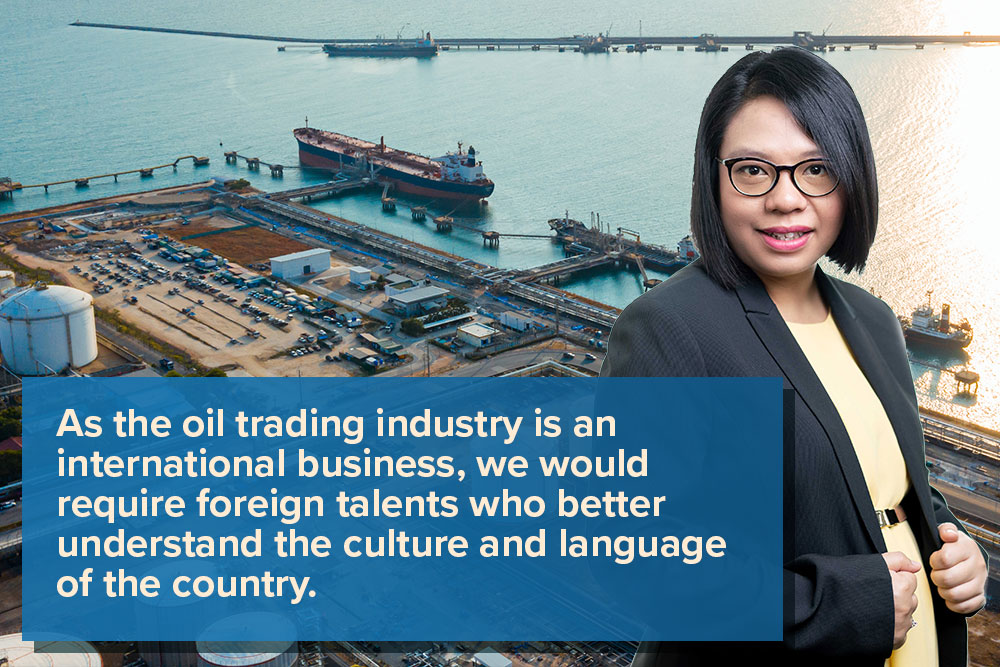In many countries, foreign workers are required to keep the economy going. They may be needed to fill possible skills and knowledge gaps in the economy, or take on job roles that are experiencing labour shortages.
In Singapore, foreign labour helps to supplement our ageing population and shortage of talent in areas such as the technology sector which requires highly specialised skills.
So far, this policy has helped us maintain our competitiveness and attract large multinational companies to expand in Singapore.
As Minister of Trade and Industry Chan Chun Sing had mentioned previously, Singapore prefers “the world’s best and brightest to be with Team Singapore – to augment our skills and capabilities, competing on our side rather than against us, and ultimately, to benefit Singaporeans, not to substitute or hurt them.”
In September 2020, our government announced that it is increasing the minimum qualifying salary for Employment Pass and S Pass holders to tighten the employment rules for foreign workers.
This policy move comes at a time when our economy has been badly hit by the COVID-19 pandemic and the government is supporting employment opportunities for locals through schemes such as the SGUnited Traineeship and the Jobs Growth Incentive.
Yet, even as our government prioritises Singaporeans, companies in Singapore share that there is a need to complement their local talent pool with foreigners for optimal results.
We speak to two companies to get their take on the talent issue.
Seah Kim Cheok Construction: Local employees’ advantage in the construction industry
At construction and civil engineering company Seah Kim Cheok Construction, local and foreign employees are required for different reasons.
Mr Seah Kah Howe, the company’s project director said: “We engage local talents as they bring the Singapore perspective and are more familiar with local regulations.” The family-run business specialises in building residential projects, condominiums, and private housing.
Giving an example, Mr Seah shared that many sub-contractors in Singapore speak dialects like Hokkien and Cantonese. They are often skilled painters, tilers, or partition board installers who prefer someone who can converse with them in dialect and understand their concerns.
“Local talents tend to understand them better and can converse with them more effectively,” added Mr Seah. Thus, the company employs locals as project managers, quantity surveyors, trade coordinators or supervisors.
Currently, the company is made up of 60% locals and 40% foreigners. The foreign staff work as project managers, architecture managers, project executives, quantity surveys and general workers.

Mr Seah shared that the company balances the need for hiring local and foreign talent by identifying synergy gaps within their company to see how each group can fill the gap.
Elaborating, Mr Seah said: “Some foreign talents are skilled at visualising models in Building Information Modeling (BIM) and Autocad. They may have great academic and training programmes back in their country. Hence, we may fill Architecture or BIM Manager posts with these talents.” BIM and Autocad are software used in the engineering industry.
Sing Fuels: Foreign employees required to fill a skills gap
Like Seah Kim Cheok Construction, home-grown energy trading company Sing Fuels recognises the importance of having a diverse workforce made up of local and foreign staff.

Ms Syazana Jumari, the company’s human resource manager said: “As the oil trading industry is an international business, we would require foreign talents who better understand the culture and language of the country. We have representative offices and subsidiaries in Taiwan, United Arab Emirates, United Kingdom, United States and Africa to serve our international network of partners.”
“At the same time, we would also need local talents in our Singapore headquarters who know the local culture. We strongly believe and have completely invested in the Singapore brand. Even though we have established offices in key markets worldwide, all transactions are invoiced from Singapore.”
At the company, local talents make up 57% of their workforce, while the remaining 43% are foreign employees. These foreign employees work as traders, as part of the management as well as the finance and operations departments.
Ms Syazana explained that the company needs foreign talent to fill the skills gap and leverage their network contacts. Additionally, the company’s employees can learn from the foreign talent’s experience.
To date, the company’s strategy of maximising local and employees’ strengths and skillsets has paid off.
Ms Syazana said: “With foreign talent, the company’s knowledge on overseas markets has increased, due to sharing of information. For example, when we wish to set up an overseas office e.g. in Greece, foreign talent would be able to guide us on the process.”
While both companies acknowledge that local hires offer plenty of advantages such as saving on relocation fees and the time spent on immigration paperwork, as well as understanding the local culture, they agree that it is important to supplement their workforce with foreign talent for the best organisational performance.
According to Mr Seah, a diverse workforce means stronger team capabilities as local and foreign staff complement and support each other. There is also better team synergy, he added.
“Foreign talent and local talent can have similar or different capabilities. Whether it is a foreign or local talent, they must learn to see what gaps are in their team and do their best to fill the gap. That is what makes a great team player.”
*The SGUnited Traineeships (SGUT) ceased in 31 March 2022.














